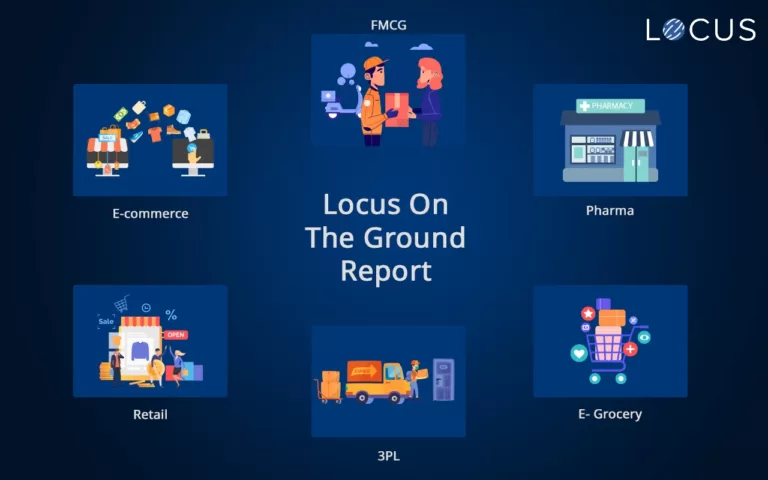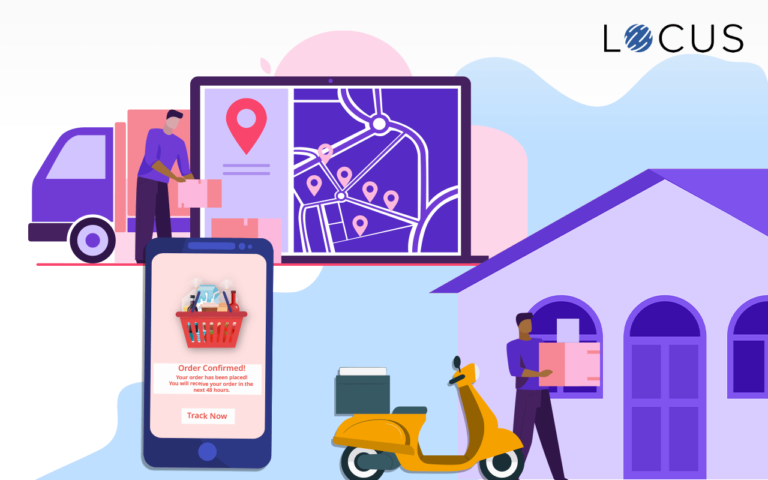E-Commerce, Grocery, Retail & CPG, Supply Chain Optimization
FMCG + eCommerce + Modern Trade Supermarkets = Future of Supply Chain
Apr 16, 2020
5 mins read

In these COVID-19 times, it is no surprise that the FMCG sector is in the thick of the action. Across the globe, there is a huge demand for essential commodities ranging from food supplies, diapers, hand sanitizers, and beauty care, among other items.
FMCG supply chains are rising to the occasion even with all the government regulations and panic buying by consumers. In the midst of all this action and uncertainties, there is a clear trend that is emerging—FMCG firms, E-commerce players and Modern Trade retail stores (MT) are the new pals in town. This isn’t just a temporary trend emerging because of the COVID-19 pandemic, it is a new shift that will become more pronounced in the times to come.
What exactly does this mean?
- Traditional FMCG sales cycle depends on a lot of mom and pop stores which are the fag end of the retail universe. These stores not only contribute lesser sales but also churn at a higher rate and are also volatile in their demand placement.
- Due to the COVID-19 pandemic, a lot of these stores are not functioning in full swing and neither are the FMCG brands able to service such stores because of the lockdown and restrictions in the movement of goods.
- This situation has made it amply clear for FMCG brands that they will have to closely tie-up with E-commerce players and Modern Trade outlets to push their inventory and keep their targets intact.
Experts in the industry do not see this as a temporary arrangement, but they feel that it will be the norm going forward. A mixture of digital and physical touch-point sales is going to be the new normal once the COVID-19 situation eases up. This is a subtle but significant change for the FMCG players. This ensures more stability in profit margins and demand prediction.
Take the example of China, which at present is slowly limping back to normalcy. The COVID-19 impact escalated during the usually festive Chinese New Year (CNY). According to a February report by research firm Kantar titled ‘Impact of COVID-19 on FMCG during Chinese New Year’, “The epidemic did bring more demand to a handful of other retail channels. Small supermarkets, mainly those located in residential communities, reported strong growth during the CNY period, as they were closer to shoppers and stocked essential fresh foods and daily necessities.”
The report also added that Chinese E-commerce behemoths JD.com, Alibaba, and Pinduoduo are also adopting proactive strategies in terms of logistics and home delivery. More importantly, Hema, Alibaba’s offline retail offering, “recorded stronger growth during the CNY period, thanks to more shoppers and more visits as consumers opted to use delivery for their daily foods. With rapid store expansion, Hema almost doubled its footprint compared to CNY in 2019.”

COVID-19 has forced even non-E-commerce users to try online offerings, thanks to the ease of shopping and the security of online platforms. The challenge would be to retain these ‘new’ online shoppers once the situation eases up.
“There is a huge opportunity for FMCG retailers and manufacturers to conceive a more proactive e-commerce strategy as technology-enabled solutions become more preferred,” says the COVID-19: Entering a New Norm in Consumer Behaviour report by Nielsen.
It is critical to figure out strategies to address their concerns, be it tech or delivery issues and stick to promises. But the fact that more shoppers will turn to E-commerce going forward is reason enough for FMCG brands to have tighter integrations with online players.
“As the recent outbreak spread, older and less adventurous consumers began also venturing online, welcoming the security and convenience that technology can provide amidst restrictions of movement and heightened caution. According to Alibaba, the number of grocery orders placed by users born in the 1960s was four times higher than normal during Spring Festival. Miss Fresh, another online retailer in China, claims its users aged 40 years and older have risen by 237% during the COVID-19 period,” says the ‘Covid-19: The unexpected catalyst for tech adoption’ report from Nielsen.
FMCG-A new dawn
The pandemic will ultimately result in a real shakeup in the way FMCG supply chain functions.
CPG/FMCG companies will be open to exploring new channels of fulfillment. If the company was in the traditional or the wholesale model of distribution, it’ll look at E-commerce or retail, some might even do direct-to-consumer. The point being, companies will rejig their distribution channels and not put all their eggs in one basket.
The FMCG Supply Chain behemoths will also want to have more captive control on their supply chain. These companies will no longer want to be at the mercy of any external agency or vendor. Right from the decision making, contracts, sourcing, inventory levels, everything will undergo rigorous scrutiny. It might very well lead to a complete re-imagining of their existing supply chain.
The companies will look at bringing in more agility so as to be better prepared when unforeseen events come knocking. All this possible shift in strategy will only make Permanent Journey Planning (PJP)/sales beat more dynamic. On-ground executives must be ready to manage a significant shift in terms of store visits. How significant will that shift be? Only time will tell.
Supply chains will now come to the forefront of their business. These supply chains will be infused with technology which will help them handle dynamic demand. The future of FMCG Supply Chain lies in a technology-led adept supply chain that can fulfill demands across traditional stores, E-commerce, and modern trade supermarkets with ease.
Source:

Related Tags:

Featured
How has COVID-19 impacted different industries – Locus On The Ground March Report
The ripples of COVID-19 are being felt across industries. While some have seen a huge surge in growth, the others have seen a steep decline. Locus, which has clients in industries like E-grocery, E-commerce, 3PL, Retail, Pharma, and FMCG, among others, has come up with a ‘Locus On The Ground March Report’. This report will […]
Read more
Delivery Experience
How to build your business around a on-demand hyperlocal delivery model?
Most consumers are stuck in their homes due to coronavirus pandemic and thus the demand for essential goods and services has made them turn to on-demand deliveries. Logistics businesses are attempting to build a on-demand hyperlocal delivery business model to fulfill this need. The COVID-19 outbreak has changed the perception of retailers towards on-demand deliveries. Retailers who are […]
Read moreMOST POPULAR
EDITOR’S PICKS
SUBSCRIBE TO OUR NEWSLETTER
Stay up to date with the latest marketing, sales, and service tips and news


FMCG + eCommerce + Modern Trade Supermarkets = Future of Supply Chain